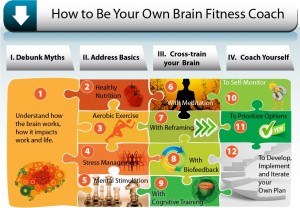I just learned that the following
article is soon to be
published (
click
here for journal info)
[Click on image to enlarge]
This is the second peer-reviewed article to demonstrate a
significant positive impact of Interactive
Metronome (IM) training on certain reading behaviors in a study with both
experimental and control groups.
The
other study was one I was involved with (
Taub, McGrew, & Keith, 2007; the abstract
is presented below).
You can access that
complete 2007 manuscript at the
Brain
Clock blog.

In the new Ritter et al. study, IM was combined with reading
and language interventions in school-age children that had language and reading
impairments. This will be called the
IM+language/reading intervention experimental group (IM+). Half of the subjects
were randomly assigned to this experimental group (n=21). The other subjects (n=28) were randomly
assigned to the same language/reading intervention, but without IM. So, this study
is not a pure investigation of the isolated benefits of IM. Instead, it should be viewed as a study that
investigated whether IM training could be a good “add on” component to other
interventions focused on language and reading.
The outcome domain assessed was various components of reading
achievement.
Both groups demonstrated statistically
significant gains in reading rate/fluency and comprehension. However, the IM+ demonstrated statistically significant
stronger gains than the language/reading intervention only (control) group. This suggests that IM may be a useful adjunct intervention to be used with other more
traditional academic related treatments directed at reading improvement.
Similar to the Taub et al. (2007) study, the IM+ students showed more improvement
(over the control students) in reading
fluency/rate. This consistent finding
across both studies has been hypothesized to be due to either (a) improvements in speed of cognitive processing, which results in greater efficiency
and automaticity in reading words, (b) greater controlled attention (focus) which improves working memory functioning, or (c) a combination of both.
The new study differed from the earlier study in that
IM+ group displayed greater reading
comprehension gains than the academic only intervention group.
Taub et al. (2007) found no improvement in reading
comprehension.
Given that both groups
received the same language and reading comprehension treatment, it is
hypothesized that the addition of IM may be impacting some cognitive processes
that facilitate reading comprehension.
I
agree with Ritter et al. (2012) that a viable hypothesis is that by increasing
focus (attentional control) the students working memory’s were more efficient.
Working memory is the minds limited capacity
“mental workbench” (just think of trying to recall a new phone number you just
looked up in the phone book).
Increased
attentional control (focus) increases the ability to actively maintain
information just read in working memory long enough for it to be associated
with material retrieved from long-term memory—thus “hooking” newly read
information into the person’s store of acquired knowledge.
Click here for a recent brief video (
I
think…therefore IM) where I explain the role of focus and working memory
and how it may facilitate higher level cognitive processing, comprehension,
etc.
Of course, the small total sample (n=49) suggests some
degree of caution. But when combined
with the Taub et al. (2007) study with larger samples, this form of replication
in a new sample provides more support for the academic benefits (especially
ease and rate of reading words) of IM interventions in school-age children. Independent replication is a cornerstone of
scientific research.
 We often view memory, thinking, emotions, as completely separate entities, but they truly are part of the same process. So, if we want to improve brain health, we need to pay attention to the "weak link" in that process. In today's society, managing stress and negative emotions is often that weak link, as we discuss during October Q&A session with participants in SharpBrains' new e-course. Time now for SharpBrains' October 2012 eNewsletter, featuring new science, new resources and new thinking.
We often view memory, thinking, emotions, as completely separate entities, but they truly are part of the same process. So, if we want to improve brain health, we need to pay attention to the "weak link" in that process. In today's society, managing stress and negative emotions is often that weak link, as we discuss during October Q&A session with participants in SharpBrains' new e-course. Time now for SharpBrains' October 2012 eNewsletter, featuring new science, new resources and new thinking.



















 How do I measure progress and results? How can I track that what I try really works?
How do I measure progress and results? How can I track that what I try really works?